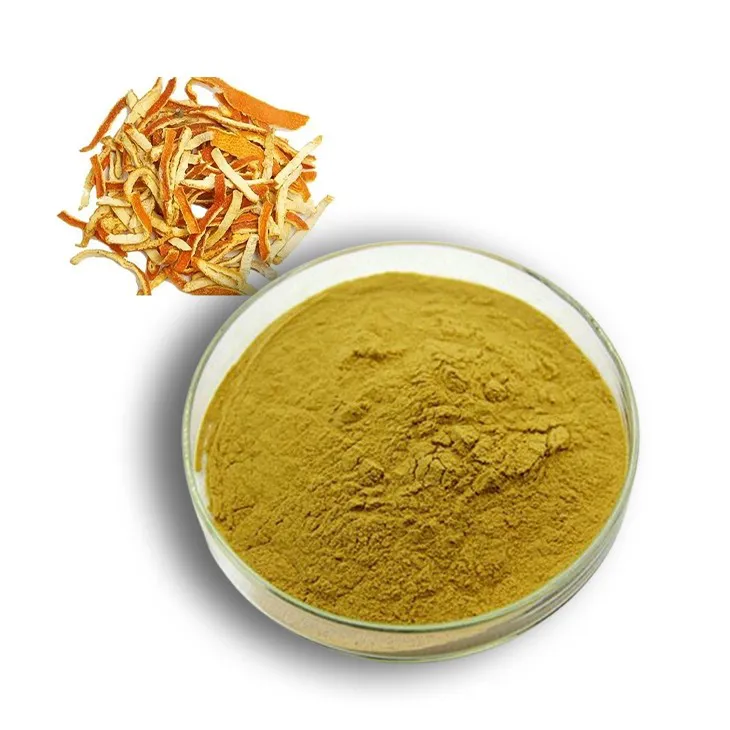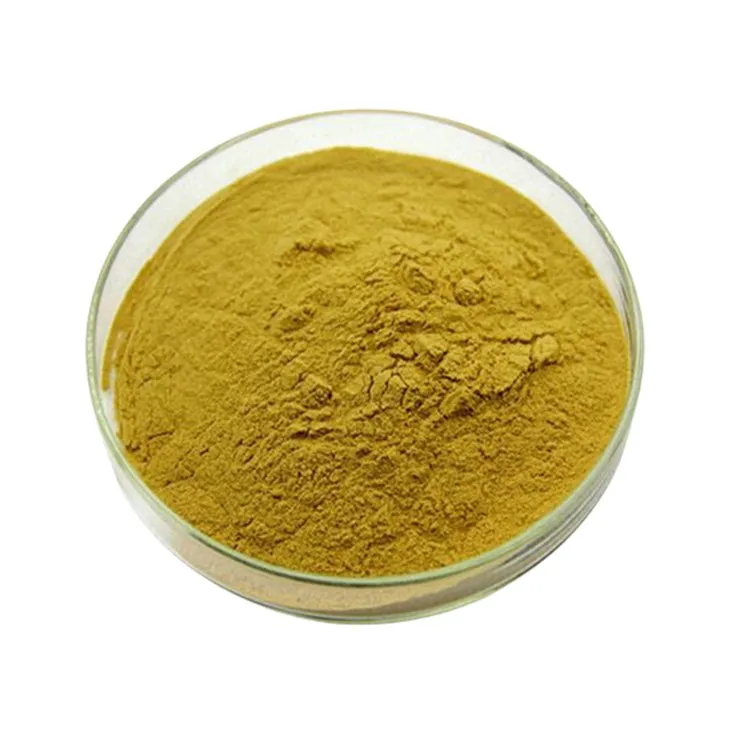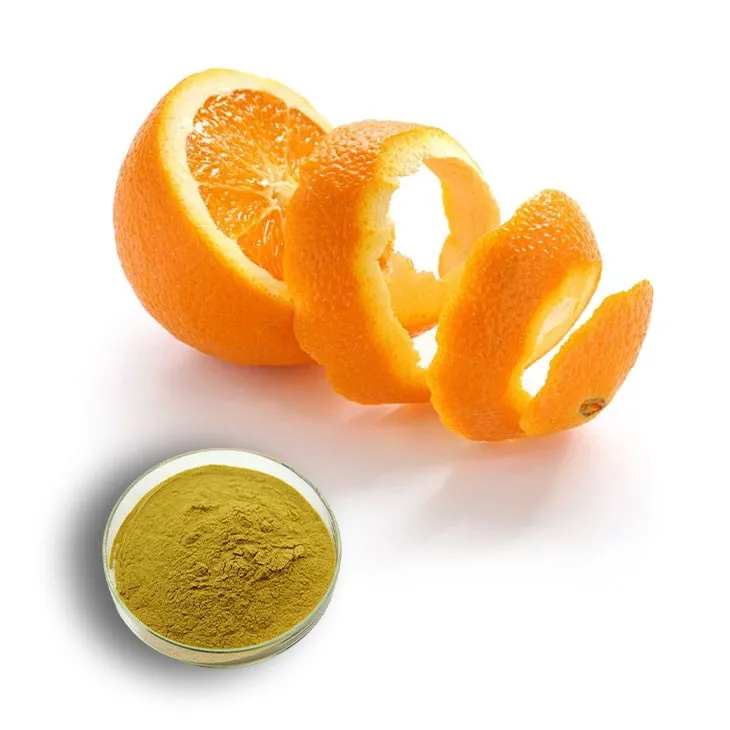- 0086-571-85302990
- sales@greenskybio.com
What Is Hesperidin and What Are Its Benefits?
2025-05-18

As science delves deeper into the world of natural compounds, bioflavonoids have emerged as key players in promoting human health. Among these, Hesperidin, a powerful plant compound found primarily in citrus fruits, has captured significant attention within the scientific and health communities. Renowned for its versatile health benefits, Hesperidin is a shining example of nature's potential to prevent and manage a wide range of health conditions. This article provides a comprehensive overview of Hesperidin, its sources, how it works, and its many benefits.
Understanding Hesperidin: What Is It?
Hesperidin is a plant-based bioflavonoid (also known as a flavonoid glycoside) primarily found in citrus fruits such as oranges, lemons, grapefruits, and tangerines. It is most concentrated in the peels and membranes of these fruits. Along with its aglycone form, hesperetin, hesperidin is a potent antioxidant with anti-inflammatory, antiviral, and vascular-strengthening properties. It plays a crucial role in defending the body against oxidative damage and maintaining vascular health.
Hesperidin was first isolated in the early 19th century from unripe oranges and was named after "Hesperides," the Greek mythological guardians of golden apples. Since then, it has been researched and recognized as a biologically active compound with several therapeutic applications, making it a valuable component in traditional medicine as well as modern dietary supplements.

Key Mechanisms of Hesperidin
Hesperidin exerts its benefits through several mechanisms, which include:
1. Antioxidant Action: Hesperidin neutralizes harmful free radicals that can damage cells and tissues. This protects the body from oxidative stress, which is linked to aging, chronic diseases, and inflammation.
2. Anti-Inflammatory Effects: It helps inhibit the production of inflammatory molecules, such as cytokines, thereby reducing inflammation.
3. Improved Circulation: Hesperidin strengthens capillaries, lowers blood pressure, and enhances overall blood flow. This vascular-supportive action makes it particularly beneficial for issues related to circulation.
4. Immune Support: By modulating immune responses, hesperidin contributes to enhancing the body's ability to fight infections and recover from illness.
5. Lipid Regulation: Studies have shown hesperidin's ability to improve lipid profiles, helping to reduce levels of "bad" LDL cholesterol and triglycerides.

Health Benefits of Hesperidin
Research has identified numerous health benefits of hesperidin, making it a vital compound in promoting wellness. Below are some of its most notable benefits:
1. Promotes Cardiovascular Health
Hesperidin is widely recognized for its cardioprotective properties. By strengthening blood vessels and enhancing their elasticity, hesperidin supports healthy circulation and prevents vascular damage. It helps lower blood pressure by stimulating the production of nitric oxide, a molecule that relaxes blood vessels and improves blood flow.
Moreover, hesperidin’s antioxidant effects protect against oxidative stress, which is considered a key driver of atherosclerosis (hardening of the arteries) and other cardiovascular diseases. It may also reduce cholesterol and triglyceride levels, lowering the risk of heart disease.
2. Supports Healthy Veins
Hesperidin is particularly effective in managing conditions related to poor venous circulation, such as chronic venous insufficiency (CVI) and varicose veins. CVI occurs when veins in the legs fail to efficiently pump blood back to the heart, leading to swelling, pain, and fatigue.
Hesperidin, often combined with another bioflavonoid like Diosmin, has been shown to significantly reduce symptoms of vein-related disorders. It strengthens vein walls, improves blood flow, reduces swelling, and alleviates the feeling of heaviness in the legs. These properties make hesperidin a popular ingredient in supplements designed for vein health.
3. Acts as a Potent Antioxidant
The antioxidant activity of hesperidin helps protect cells from damage caused by free radicals, which play a role in aging and degenerative diseases. It also helps reduce oxidative stress in the liver and kidneys, promoting their function and protecting these vital organs.
Studies have suggested that hesperidin may also slow cellular aging and reduce degeneration, making it a versatile compound in maintaining overall health and vitality.
4. Reduces Inflammation
Hesperidin’s anti-inflammatory effects benefit multiple bodily systems. By modulating inflammatory responses, hesperidin has potential applications for managing inflammation-associated conditions like arthritis, inflammatory bowel disease, and asthma. It helps regulate the balance of cytokines in the body, dampening pro-inflammatory signals while enhancing anti-inflammatory agents.
5. Enhances Immune Function
Hesperidin exhibits immune-modulating properties by supporting the body’s ability to fight infections. It has shown antiviral activity in several in-vitro studies, particularly against respiratory viruses. Hesperidin’s immune benefits, combined with its anti-inflammatory and antioxidant actions, make it promising for protecting against seasonal illnesses such as colds and flu.
6. Protects Brain Health
Recent studies suggest that hesperidin may offer neuroprotective benefits as well. Its ability to mitigate oxidative stress and inflammation in the brain helps protect neurons and may reduce the risk of neurodegenerative diseases such as Alzheimer’s and Parkinson’s disease. By improving blood circulation in the brain, hesperidin also supports cognitive function and mental clarity.
7. Supports Skin Health
Hesperidin can improve skin health by reducing oxidative damage caused by UV rays and pollution. Its anti-inflammatory and antioxidant properties help maintain skin barrier function, reduce redness, and promote a radiant complexion. Combined with its role in improving blood flow, hesperidin enhances nutrient delivery to skin cells, encouraging healthier, more youthful-looking skin.
8. May Aid in Weight Management
Preliminary studies indicate that hesperidin may play a supportive role in weight management by influencing lipid metabolism and reducing the accumulation of fat in the body. While further research is needed, its potential for regulating body weight and improving metabolic health is noteworthy.

Sources of Hesperidin
Hesperidin is abundant in citrus fruits, particularly in the peels. Oranges, tangerines, lemons, and grapefruits are excellent natural sources. If dietary intake is insufficient or people want higher doses, hesperidin is also available in supplement form, often combined with other bioflavonoids like Diosmin.
When consuming citrus fruits, consider using the zest or peel in cooking to maximize hesperidin intake. However, if you’re seeking therapeutic levels, dietary supplements are a more practical option.

Is Hesperidin Safe?
Hesperidin is generally considered safe for most people when consumed in modest amounts from food or supplements. Clinical studies have shown good tolerability, with few, if any, side effects. Pregnant or breastfeeding women and individuals with specific medical conditions should consult their healthcare professional before using hesperidin supplements.
Conclusion
Hesperidin is a powerful natural compound with a wide range of health benefits. From promoting cardiovascular health and reducing inflammation to supporting immune function and protecting skin, hesperidin offers a multifaceted approach to enhancing wellness. Whether through increased consumption of citrus fruits or supplementation, incorporating hesperidin into your lifestyle could provide significant benefits to your overall health.
As research continues to explore the potential of hesperidin, it stands as an excellent example of how nature provides us with tools to prevent and manage various health conditions, helping us live longer and healthier lives.
- ▶ Hesperidin
- ▶ Citrus Bioflavonoids
- ▶ Plant Extract
- ▶ lycopene
- ▶ Diosmin
- ▶ Grape seed extract
- ▶ Sea buckthorn Juice Powder
- ▶ Fruit Juice Powder
- ▶ Hops Extract
- ▶ Artichoke Extract
- ▶ Mushroom extract
- ▶ Astaxanthin
- ▶ Green Tea Extract
- ▶ Curcumin
- ▶ Horse Chestnut Extract
- ▶ Other Product
- ▶ Boswellia Serrata Extract
- ▶ Resveratrol
- ▶ Marigold Extract
- ▶ Grape Leaf Extract
- ▶ New Product
- ▶ Aminolevulinic acid
- ▶ Cranberry Extract
- ▶ Red Yeast Rice
- ▶ Red Wine Extract
-
Saponin Extract
2025-05-18
-
Yohimbine Bark Extract
2025-05-18
-
Curcumin Extract
2025-05-18
-
Curcumin
2025-05-18
-
Okra Extract
2025-05-18
-
Eucommia Ulmoides Extract
2025-05-18
-
Cassia Seed Extract
2025-05-18
-
Red Wine Extract
2025-05-18
-
Saw Palmetto Extract
2025-05-18
-
Citrus Aurantium Extract
2025-05-18





















